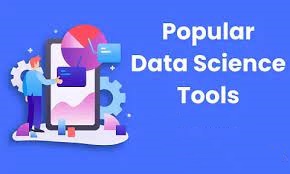Key Data Science Trends in 2024
- Introduction to Data Science Trends
- What is data science?
- Importance of staying updated on trends
- Automation and AI in Data Science
- Role of automation in data analysis
- Advancements in artificial intelligence (AI) for predictive analytics
- Edge Computing and Data Processing
- Definition and significance of edge computing
- How edge computing impacts data processing in real-time
- Explainable AI (XAI)
- Understanding the concept of Explainable AI
- Importance of transparency and interpretability in AI models
- Privacy-Preserving Technologies
- Rising concerns over data privacy
- Techniques such as federated learning and homomorphic encryption
- Quantum Computing and Data Science
- Introduction to quantum computing
- Potential applications and impact on data analysis
- Augmented Analytics
- Definition of augmented analytics
- Integration of machine learning and natural language processing (NLP)
- Blockchain in Data Science
- Overview of blockchain technology
- Use cases in data integrity and security
- Ethical Considerations in Data Science
- Addressing biases in algorithms
- Ensuring fairness and accountability in data-driven decision-making
- Data Governance and Compliance
- Importance of data governance frameworks
- Compliance with regulations such as GDPR and CCPA
- Hyperautomation and Data Integration
- Combining automation with data integration processes
- Streamlining workflows for efficiency
- Rise of No-Code/Low-Code Platforms
- Simplifying data analysis and modeling
- Empowering non-technical users to leverage data insights
- Multi-Cloud and Hybrid Cloud Solutions
- Benefits of multi-cloud and hybrid cloud environments
- Challenges and strategies for implementation
- Data Visualization and Storytelling
- Enhancing data communication through visualizations
- Importance of storytelling for conveying insights
- Conclusion
- Recap of key data science trends in 2024
- Emphasis on the evolving landscape and the need for continuous learning



